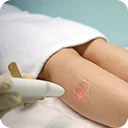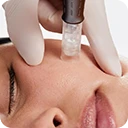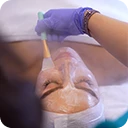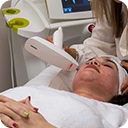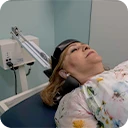Understanding Acupuncture: Ancient Roots and Modern Applications
Acupuncture, a cornerstone of Traditional Chinese Medicine (TCM), has been practiced for thousands of years. This ancient therapy is grounded in the belief that a vital energy known as “qi” (pronounced “chee”) flows through distinct pathways, or meridians, within the body. When qi moves freely, health is maintained; blockages or imbalances, however, are thought to result in discomfort or disease.
While acupuncture’s roots are deeply embedded in Eastern traditions, its appeal has grown significantly in Western countries over recent decades. Today, individuals seek acupuncture for a variety of health concerns, from chronic pain and digestive issues to stress management and sleep disturbances. This growing interest is fueled by an increasing number of scientific studies supporting its effectiveness for certain conditions.
Acupuncture is employed both as a standalone treatment and as a complement to other medical therapies. By addressing the whole person—physical, mental, and emotional—acupuncture embodies a holistic approach to health and wellness. Its integration into modern healthcare highlights its relevance for those seeking natural, minimally invasive options for maintaining and enhancing well-being.
How Acupuncture Works: Balancing Energy and Supporting the Body
At its core, acupuncture involves the gentle insertion of ultra-fine needles into targeted points on the body, known as acupoints. These points are strategically located along meridians, the pathways through which qi is believed to flow. The primary goal is to rebalance qi and support the body’s natural ability to heal itself.
Modern research is shedding light on the physiological mechanisms behind acupuncture. Needle stimulation at specific acupoints appears to activate the immune system, enhance blood circulation, and promote the release of the body’s natural painkillers, such as endorphins. Additionally, acupuncture influences the fascia—a connective tissue network—helping trigger the body’s healing response and improving the delivery of nutrients to tissues.
Acupuncture also impacts the nervous system by modulating signals that affect pain perception and stress responses. Some studies suggest that it can help regulate neurotransmitters like serotonin and GABA, which play key roles in mood, relaxation, and sleep. This multifaceted approach explains why acupuncture is used to manage a range of symptoms—from physical discomfort to emotional distress—and why it remains a valued tool for supporting physiological balance.
Easing Chronic Pain: Acupuncture’s Role in Pain Relief
Chronic pain is one of the most common reasons people seek acupuncture. Scientific evidence supports its effectiveness for various pain conditions, including lower back pain, knee osteoarthritis, neck and shoulder discomfort, headaches, and migraines. A comprehensive meta-analysis in 2017 found that acupuncture’s pain-relieving effects often lasted up to a year after treatment concluded.
Acupuncture’s ability to alleviate pain is attributed in part to its stimulation of the fascia and underlying tissues, which boosts blood flow and accelerates the delivery of oxygen and nutrients. This process not only helps to reduce inflammation but also promotes tissue repair. Moreover, acupuncture can prompt the body to produce endorphins and other natural substances that modulate pain signals.
Recognizing these benefits, some healthcare systems have begun to cover acupuncture as a treatment for chronic low back pain. This acceptance is a testament to its safety and effectiveness when administered by qualified practitioners. For individuals seeking alternatives to prescription medications or invasive procedures, acupuncture offers a gentle, integrative approach to managing persistent pain and improving quality of life.
Managing Allergies, Nausea, and Sleep: Targeted Benefits Explained
Beyond pain management, acupuncture has shown promise for several other health concerns, particularly those that are challenging to address with conventional treatments alone. For individuals with allergic asthma, acupuncture may help by decreasing levels of inflammation in the airways—specifically by lowering pro-inflammatory cytokines like interleukin-6 (IL-6). When paired with standard asthma treatments, acupuncture has been linked to improved symptom control and better quality of life.
Nausea and vomiting, whether related to chemotherapy, anesthesia, or pregnancy, can be distressing and difficult to manage. Acupuncture—especially at points like P6 on the inner wrist—has been found to reduce nausea severity without the side effects associated with increased medication doses. In some cases, acupressure (using pressure rather than needles) has yielded similar benefits, providing a needle-free alternative for those who prefer it.
Sleep disturbances, including insomnia, are another area where acupuncture can make a significant impact. Studies indicate that acupuncture not only enhances sleep quality but also helps to lower anxiety levels by calming the sympathetic nervous system and boosting relaxation-promoting chemicals in the brain. For those seeking natural solutions to persistent symptoms, acupuncture stands out as a versatile tool that supports overall well-being.
Supporting Women’s Health and Post-Surgical Recovery with Acupuncture
Acupuncture offers notable benefits for women’s health, particularly in managing menstrual cramps and headaches. Research suggests that acupuncture can be more effective than nonsteroidal anti-inflammatory drugs (NSAIDs) for relieving menstrual pain, especially when administered in multiple sessions leading up to menstruation. This natural approach is appreciated by those who prefer to minimize medication use or who experience side effects from standard treatments.
Headaches and migraines, which often fluctuate with hormonal cycles, also respond well to acupuncture. Regular sessions can reduce the frequency and intensity of these episodes, providing relief that is comparable to some preventive medications. For women seeking drug-free options for recurring discomfort, acupuncture presents a gentle and holistic alternative.
Post-surgical recovery is another area where acupuncture shines. It can help alleviate a wide range of symptoms common after surgery, including pain, nausea, vomiting, constipation, fatigue, and sleep disturbances. Additionally, acupuncture provides emotional support, helping individuals manage anxiety and stress during the recovery process. Its ability to enhance relaxation and foster a positive outlook contributes to a smoother, more comfortable healing journey.
Safety, Practitioner Credentials, and What to Expect During Treatment
Safety is a top priority when considering acupuncture. This therapy is widely regarded as safe when performed by qualified and licensed practitioners. In most regions, acupuncturists must complete rigorous education and obtain certification from recognized organizations, ensuring they possess the necessary skills and knowledge to deliver effective care.
When choosing an acupuncture provider, it’s important to verify their credentials and training. Many practitioners are certified by national or state boards, and reputable organizations often set high standards for education, ethics, and safety. Some medical doctors and osteopathic physicians also receive specialized training in acupuncture, offering patients a range of options for integrating this therapy into their wellness routines.
During a typical session, you can expect a thorough consultation to assess your health needs and goals. The needles used are extremely fine, and most people report little to no discomfort during insertion. Treatments are tailored to the individual, with practitioners selecting acupoints that address specific concerns. This personalized approach, combined with a relaxing environment, helps ensure a positive and supportive experience.
Empowering Your Wellness Journey with Acupuncture
Acupuncture is more than an ancient tradition—it’s a modern tool for those seeking to take charge of their health and well-being. By offering relief from chronic pain, allergies, nausea, sleep disturbances, and supporting recovery, acupuncture complements a wide range of wellness strategies. Its ability to address both physical symptoms and emotional well-being makes it a valuable addition to any self-care routine.
The growing body of evidence supporting acupuncture’s effectiveness highlights its role as a credible, science-backed option for managing diverse health challenges. For individuals interested in holistic care, acupuncture encourages active participation in the healing process, empowering you to make informed choices that align with your wellness goals.
Whether you’re managing specific health concerns or simply looking to enhance your overall vitality, acupuncture provides a pathway to greater balance and resilience. By partnering with skilled practitioners and embracing a comprehensive approach to wellness, you can experience the many potential benefits that this time-honored therapy has to offer.










